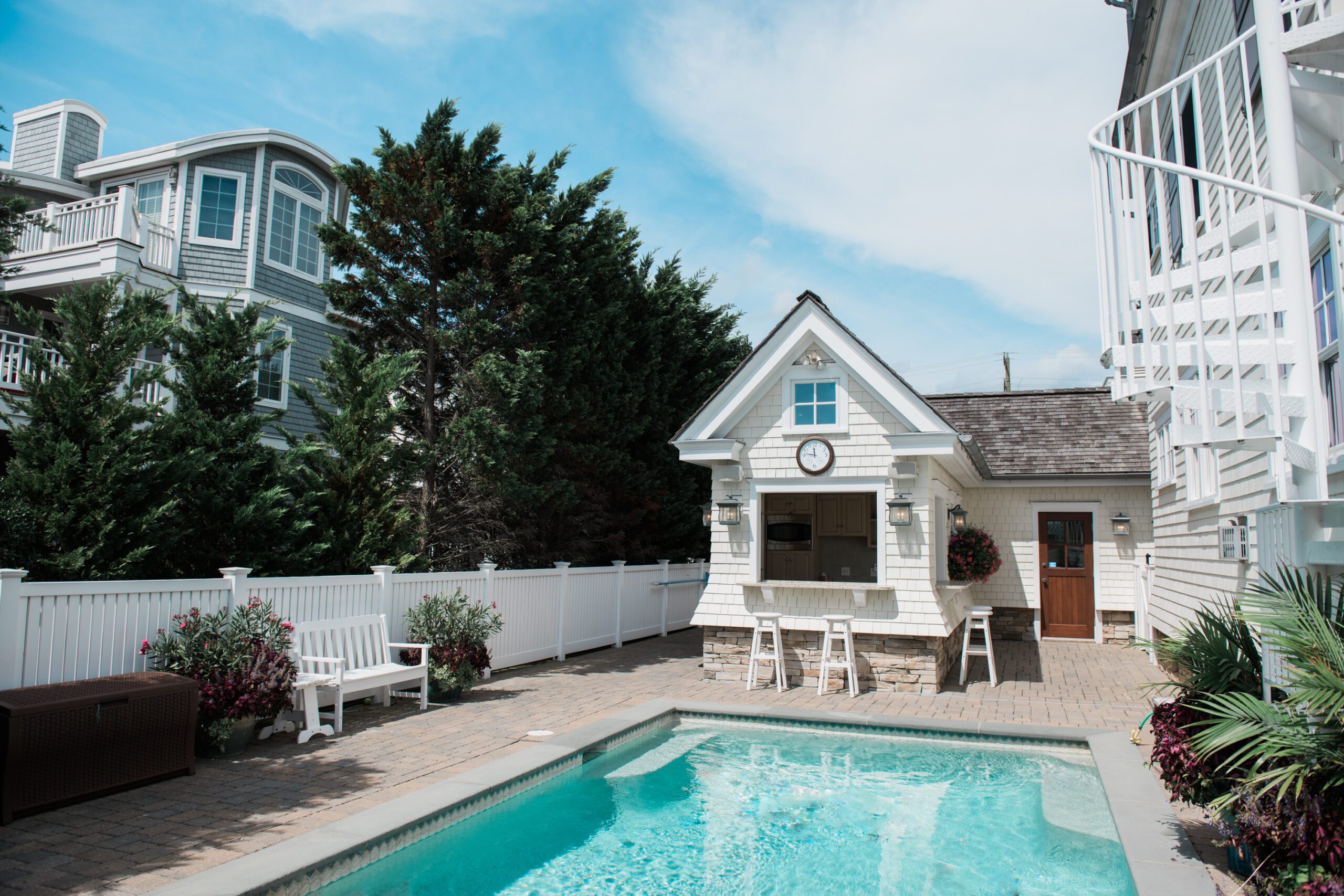Covid-19 has left many would-be outdoor bathers stuck on dry land this summer, with towns shuttering neighborhood pools and travel plans curtailed.
Competition in some areas has heated up for homes with swimming pools and private cabanas, where homeowners can enjoy the outdoors without having to worry so much about social distancing.
Impact on Home Value
Ron Clarke, Long & Foster Real Estate’s senior vice president overseeing operations in New Jersey, Pennsylvania and Delaware, estimates that demand for homes with these features in his area has risen by 30% compared to 2019.
“The entirety of the Philadelphia suburbs has seen greater interest and value growth in homes that have larger yards and more private amenities,” Clarke told us. “The desire for a personal oasis has increased dramatically in every community and price range we serve.”
Northern New Jersey Shore home sellers have benefited from proximity to New York City as well, he added, because city dwellers are looking for homes that provide a nearby place to bug out, where they can work from home and still enjoy being outdoors – preferably poolside.
Generally, an in-ground pool adds to a home’s value if most of the surrounding homes have pools. This is usually because of a warm climate or location in a desirable second-home spot. If it doubles as a vacation rental, having a pool helps market the home to holiday seekers who might want to take a dip after a day at the beach.
In other areas, swimming pools can hurt a home’s resale prospects, because many buyers won’t want the safety liability or upkeep costs. If you’re thinking of adding a pool, talk with an agent about how your home’s value might be affected in your specific market.
Less-Permanent Solutions
More homeowners are also adding temporary backyard oases, in light of Covid-19 changes. Above-ground pools are all the rage, with retailers sold out and orders backlogged.
Other popular options include quick-set temporary models, or even inflatable ones. The Association of Pool and Spa Professionals has a free booklet that covers safety and upkeep of on-ground pools. If you’ve purchased a blow-up pool, the American Red Cross recommends draining it when it’s not in use, and flipping it over to keep it empty until you’re ready to use it again.
Insurance Considerations
Any pool would be what the insurance industry calls an “attractive nuisance,” one that would increase the chances of an accidental drowning on your property.
The Insurance Information Institute recommends increasing your homeowners liability policy to at least $300,000 to $500,000 or higher if your home has a pool. A separate umbrella insurance policy is also advised, for additional liability protection.
No matter what kind of water feature factors into your warm-weather plans, be sure to stay safe and follow recommended safety precautions. And if Covid-19 has you dreaming of finding your own backyard paradise, get a Long & Foster agent to guide you.
